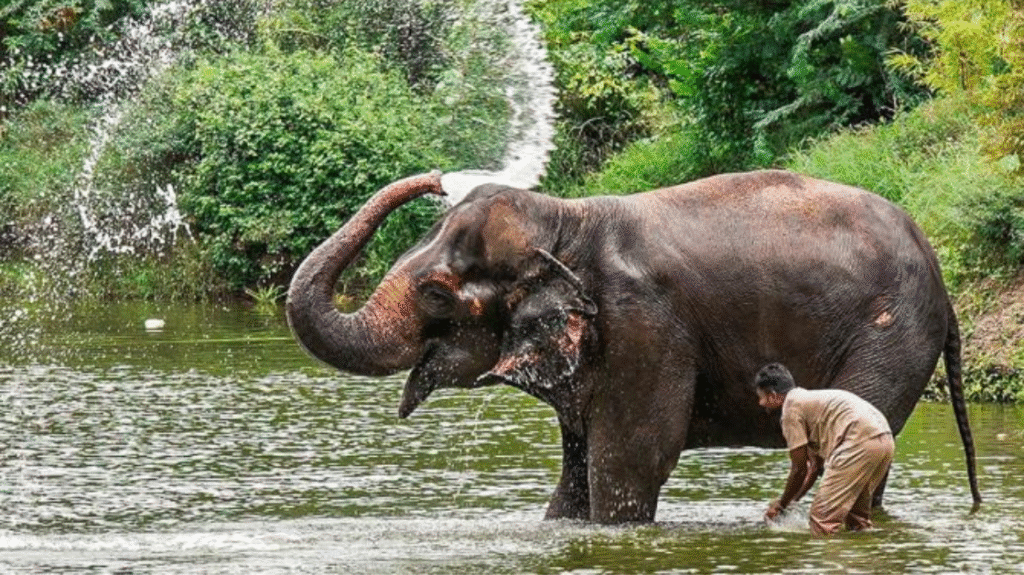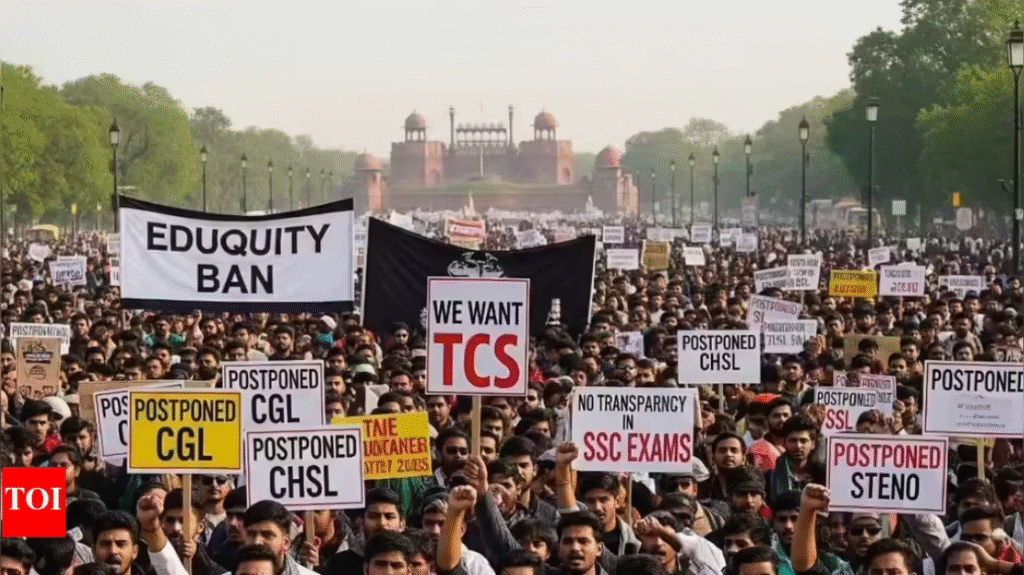In a saga blending environmental law, cultural reverence, and corporate interest, the controversy over Madhuri (Mahadevi)—a 36‑year‑old elephant deeply associated with the Nandani Jain Matha, Kolhapur—continues to unfold. A Bombay High Court order, later upheld by the Supreme Court, relocated her to Vantara, a luxurious animal rescue centre in Jamnagar run by the Reliance Foundation, prompting widespread public uproar.
⚖️ The Court Verdict & Judicial Timeline
- On July 16, the Bombay HC directed the relocation of Madhuri to Vantara, based on reports by PETA India and a Supreme Court-appointed high-power committee highlighting her deteriorating health and symptoms of stress.
- Despite protests, the SC dismissed the Jain Math’s petition on July 29, affirming the High Court’s decision.
- Madhuri was formally transferred to Vantara on July 28, followed by an emotional farewell from locals.
🌍 Vantara’s Position & Compassionate Proposal
- Vantara clarified it played no role in initiating the elephant’s relocation, asserting it strictly complied with court orders.
- It has pledged full cooperation with any Supreme Court review petition filed by the Maharashtra government or Jain Math for Madhuri’s return.
- As a conciliatory gesture, Vantara has proposed building a satellite rehabilitation centre in Nandani, equipped with hydrotherapy pools, laser therapy units, and open, chain-free habitat designed for Madhuri’s needs.
- A Vantara official issued a public apology for any distress caused, reaffirming a commitment to transparent collaboration and prioritizing Madhuri’s welfare.
👥 Political & Public Backlash in Kolhapur
- Mass protests in Kolhapur saw thousands marching over 45 km, voicing their demand to bring Madhuri back from Gujarat to her home—reflecting decades of cultural connection.
- Over 204,000 signed petitions sent to President Murmu symbolize the intensity of public emotion and communal attachment.
- Maharashtra CM Devendra Fadnavis publicly committed to supporting a review petition in the Supreme Court and called for a high-powered committee to examine elephant transfers—signaling strong state involvement.
🧭 Legal & Ethical Implications
1. Fundamental Rights vs Animal Welfare Laws
Courts had to balance Madhuri’s physical welfare (WPA, CZA) with community’s religious sentiments (Article 25). Judicial priority was health-based rehabilitation, but dissenters argue it came at spiritual cost.
2. Role of NGOs & Evidence Threshold
The relocation rested on clinical assessments. Yet, residents question whether vet reports were transparent, and how much weight public protests should carry in court decisions.
3. State Responsibility & Oversight
Fadnavis’s move to involve forest officials and propose local rehab raises questions about state liability and participatory democracy in wildlife governance.
4. Corporate Institutions in Legal Processes
Vantara’s involvement (Reliance-backed private entity) underscores the complex dynamics of judicial compliance, ethical responsibility, and corporate influence in animal welfare proceedings.
📦 Case Summary Table
| Aspect | Detail / Observation |
|---|---|
| Relocation Orders | Bombay HC (July 16); SC upheld (July 29) |
| Community Sentiment | Deeply emotional protest in Kolhapur, petitions to President |
| Vantara’s Stance | Compliant, not initiator; supports review petition |
| Proposed Rehab Facility | Designed per best practices, near Nandani |
| Government Role | Fadnavis backing legal challenge and rehab coordination |
| Core Legal Conflict | Health welfare vs religious trust |
✅ Final Thoughts
The Madhuri controversy is far more than an animal rescue story—it’s a layered discourse on justice, sentiment, and legal nuance. With public opinion, religious tradition, and corporate facilitation interwoven, the issue tests India’s capacity for inclusive, balanced judicial redress. As Maharashtra prepares for a possible Supreme Court review, Vantara’s willingness to cooperate and the state’s sensitivity to public sentiment hold promise for a compassionate, lawful outcome.
To read more Indian Laws and news, visit Legal Guide India



